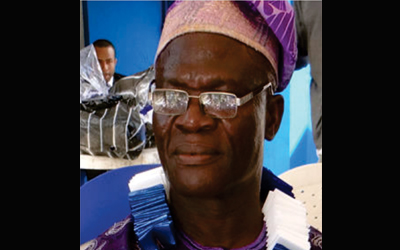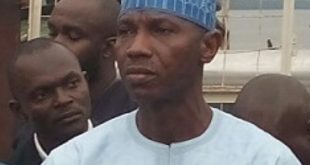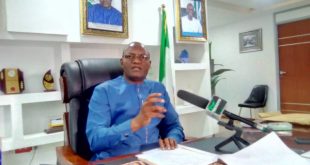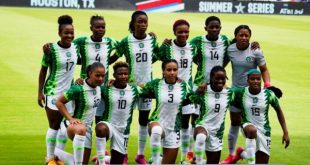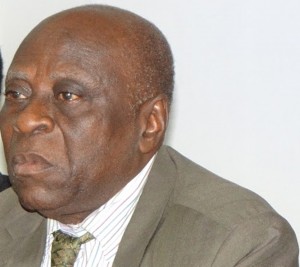
Otunba Kunle Folarin is the Chairman, Ports Consultative Council (PCC). In this interview; he assesses the maritime industry in the past year and the likely outlook of the present year, 2015. In his opinion, the maritime industry in the year 2014 performed above average.
What is your verdict on the Nigerian maritime world in 2014?
The maritime world in 2014 impacted on the Nigerian maritime sector. In the maritime world, there were a lot of issues on International Maritime Organisation(IMO) regulations that came to take effect from 2014 and beyond. Example is the double haul provision, that all ships should have double hall, I have mentioned it before. It will also affect Nigerian trade. Most of the ships that come to Nigeria are single hall vessels and therefore if they are withdrawn, where do we get cheap vessels to come to Nigeria? And that means that double hall vessels probably will come up for charter and consequently, there will be increase in the cost of goods and services that come into the country when the double hall provision comes into effect globally. Within the Nigerian context, 2014 witnessed several fundamental shifts in policies; for example, the economic regulation of the port industry, the inland container depot issue was on the fore front for implementation, there was improvement in the intermodal transport. For example, the railway transportation services increased and there were elements of reform in the port industry.
Effectively, we can see a lot of modernization within the port by way of infrastructural renewal, the road network is being reformed, some terminal operators get extension to their lease period. These were the good news but on the other side of the news, the issue of piracy became a big problem for Nigeria to tackle, particularly, within the gulf of Guinea. Those are the challenges we are facing and therefore brought the need for International Ships and Ports Security (ISPS) Code implementation and the issue of making sure that piracy is reduced to the barest minimum in the country. Of course, NIMASA was in the news again because they were nominated as ISPS consultancy agency.

Also, NIMASA was directed to step up its anti-piracy surveillance which they did by acquiring more patrol boats and also the Nigerian Navy had a working collaboration with NIMASA in checking the menace.
In terms of cargo throughput, there was a slight drop in the overall cargo throughput. In terms of revenue generation, the Nigeria Customs Service almost made their N1 trillion target. The change from pre-shipment inspection to destination inspection was effectively handled by Customs. Of course, there were challenges in the documentation processes but they were able to overcome that challenge. In terms of other developments, the inland waterways was improved because government approved additional two river ports in Makurdi and one ongoing in Lokoja almost complete.
Why are we looking at these? We are looking inwards to see how Nigeria Inland shipping can be enhanced because the Cabotage which was inland shipping Act didn’t fail but didn’t pass either; it remained the same. That was a sour point to indigenous shipping companies who have felt that they would leverage on the Cabotage Act to become a major player in the shipping sector. Beside that, we will start looking at Nigeria’s position in the international maritime domain. For example, the ECOWAS, International Labour Organisation(ILO), the Maritime Labour Convention (MLC 2006) which was recorded by Nigeria in 2013, we are still waiting for domestication by an international law because after ratification by Nigeria, it doesn’t become a law until the convention is domesticated by the National Assembly. It is then that Nigeria can say she is fully compliant but that one is in limbo as we speak.
In terms of manpower development, of course, NIMASA stepped up and increased the number of seafarers, cadets training both locally and abroad. NIMASA and other stakeholders were challenged to do more but they were not able to go beyond the level of what they have achieved in terms of ability to achieve competence by most of the cadets because they lack sea time, the practical aspect of their training without which you cannot get the full certification. They cannot get their certificates of competence until they have gone to sea and Maritime Academy; Oron lacks the capacity to give them that kind of training. The issue of getting the 20 years maritime master plan was achieved by the Federal Ministry of Transport, they were able to commission that study so that Nigeria can plan ahead. You don’t wait until the port is congested before you plan. How do we expand? What is the capacity of the port? Those are the issues.
On the other side, they have not been able to achieve ship building capacity because the Cabotage Act made it mandatory that any ship in the Cabotage regime must be built in Nigeria and they have not been able to do that yet, that was one of the points that was raised in the attempt to review the Cabotage Act. If you cannot achieve it, don’t make it mandatory, step it down and concentrate on where the facilities are so that the Cabotage Act can move on.
Overall, 2014 performance was just above average, we have not seen anything really spectacular that we will like to see in the maritime sector. For instance, we want to see that river ports are working, that we can enhance inland water traffic, enhance domestic trade, to provide ferry services and transport for people. We want to see things begin to happen. Indigenous shipping capacity is not there, there are several reasons hence, indigenous interests should start looking elsewhere for answers to be able to finance or acquire ships. The Nigerian International trade is very huge; it is importing over 150 million tones of cargo. If we have 5,400 vessels coming to Nigerian seaports and we don’t have up to 10% of that, that means something is wrong somewhere. We cannot depend on the Cabotage Act which is over ten years and nothing has happened, again, if you look at the Local Content Act and other Acts, they are supposed to promote and jumpstart the maritime sector to becoming a major player especially now that oil prices are crashing, it is obvious that there will be alternative way of generating revenue for this country and all fingers pointed at the maritime sector to be able to fit in that role and I believe that it can actually bail out Nigeria from the corner they have been boxed into now.
Failure to pass the maritime bills in the National Assembly is a great worry to some stakeholders; how do you think it will affect the sector in 2015 if still not passed before the end of the 7th National Assembly?
I said earlier that I scored the maritime sector in 2014 just above average. The major earth-shaking event we are looking out for this year is creating enabling laws so that those areas that are being omitted should move. For example, the Port and Harbour Bill has been there for over six years. The issue of Public-Private sector could be achieved, that is a hindrance created by the non-passage of the laws. Public-Private partnership has not been successful the way we expected it because the law has not been reformed in the way that will make it possible for the private sector to fully participate in the Port and Harbour Bill.
To what extent do you think that Federal Government waivers are affecting the maritime sector?
The waivers are based on the fact that indigenous shipping players are not complying with the provisions of the law. It is a tall order for them because they cannot build a ship or man it but then, there are other alternatives. Before the waiver, they should have been able to put their acts together to mitigate the absence of these facilities but then, waiver clause is simply what we don’t have but we believe that we could consciously and gradually comply with the law and therefore the issue of waiver could be minimized or entirely removed.
What is the effect of the dwindling oil prices and devaluation of naira on the maritime sector?
It is obvious that if the Naira is devalued and we are still an import-dependent economy and continue to import for our industries here, the consumer goods are imported at a higher price, therefore the unit cost on the market will be high, that is one of the immediate effects of devaluation and if the price of machinery continues to go up, the industry will be dying little by little. What can we do, mitigate the situation? I believe that the downward trend in the price of oil and gas sector is an opportunity for the maritime industry to showcase itself. It is capable of filling the gap that has been vacated by the oil and gas sector.
What should the maritime industry do to step into this shoes vacated by the oil and gas sector smoothly?
Don’t forget that shipping is international and you don’t have means to import cargo, you keep parking ships. What do I mean by that? Many countries that supply bunkers, that repair vessels, have these things on their own because the ships are attracted to these destinations because they offer other services in the maritime sector. Also, there are other industries that depend on the port for its raw materials and some of them are located in and around the port like the Flour Mills. These are other areas we can step up our act and in fact, be able to export cargo to other countries; it will increase our export abilities. If you look at the volume of Nigeria import, they are recording at least over I million tones of containers, over 150 metric tons of cargoes, bulk cargo, dry cargo. I believe that if we reform the total package we have, we will actually be a player to be reckoned with in the maritime world. Do you know how many tones of rice we ship from Thailand every year and not sending anything to them, the balance of payment will be in their favour. We should start looking at bilateral issues whereby we have a counter trade agreement with all those countries we are importing from so that we can sell something to them too.
What are the things the government did not do in 2014 that you expect them to do this year for the maritime industry?
The government did not look at non-oil exports, did not look at the amount of money generated by the non-oil exports that is the first major call. They should draw policies that get a reciprocal action from those that are not receiving any export order. It will be a major policy change. Either you invest in Nigeria or you do something for Nigeria. If you cannot take our export, then we are not importing from you. We need investments, Foreign Direct Investments that will create employment and wealth for the country. Another thing is the expansion of the port so that we can take other countries along and transship them. For example, the land-locked countries like Niger, Burkina Faso, Mali should use Nigeria as their trans-shipment port. All the land-locked countries can never get water tomorrow. We have over 900 nautical miles of coast line, 8 states that have ports; we should try to attract these countries to our ports by expansion and progressive reforms.
How has inconsistencies in government policies also affected the maritime fortune?
Good question, because if policies are inconsistent, they can never attract any serious business players and investors. It can never sustain the confidence of the people who work for it. What is important for us as a country is to take advantage of the opportunity presented by the near collapse of oil and gas sector and quickly develop the infrastructure and all the system that will take control. Look at the land-locked countries; they are going through Cotonou, Lome and Nigeria is nearer to them. So, that is one of the things we should be looking at. We should develop an inland container depot; make it attractive so that we can attract these countries to our ports.
 MMS PLUS NG – Maritime, Aviation, Business, Oil and Gas News Online Newspaper with coverage in Maritime, Oil and Gas, Aviation, Power and Energy as well as Financial News
MMS PLUS NG – Maritime, Aviation, Business, Oil and Gas News Online Newspaper with coverage in Maritime, Oil and Gas, Aviation, Power and Energy as well as Financial News



